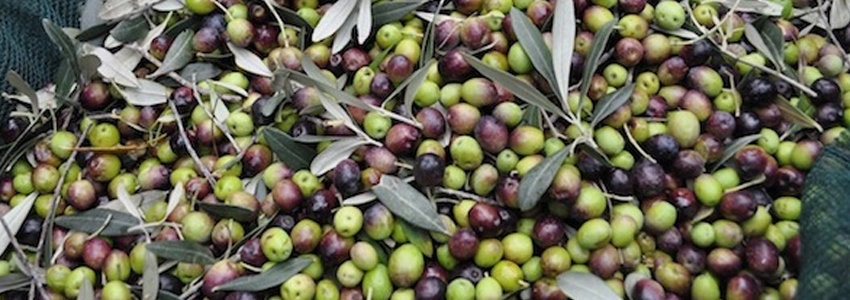The world woke up to Mediterranean diet in the mid-1990s and from the time Dr. Walter Willett of Harvard University’s School of Public Health spoke of it in the positive, the Health shelves in bookstores have been replete with bestsellers on Mediterranean Diet. Even television’s lifestyle shows have run series on Mediterranean Diet and enjoyed a cult-like status.
Many a study were launched and funded to find out about the health benefits this diet rich in olive. Today we know that olive has a very positive and strong impact on our cardiovascular health. It also protects us from certain cancer types. It now turns out that using a Mediterranean Diet rich in olives also protects our bones and including them in your diet for just two years exhibited a protective effect on bones which were on their way to losing mass and becoming fragile with aging! (1)
Mediterranean Diets are primarily the traditional food eaten in the Spain, Italy, Portugal, southern France, Greece and parts of the Middle East. They are rich in fruits, vegetables, fish and they use plenty of olives including olive oil in their preparations.
As they age, men and post-menopausal women are both affected by loss of bone mass and strength. Over time the bones become fragile and even porous in some cases leading to frequent falls and fractures causing debility and even mortality in some.
Recent study was conducted in Spain where some 127 participants were included from the Prevencion con Dieta Mediterranea study centres. The volunteers who were men between ages 50 and 88 years were studied to check the effect of Mediterranean diet on cardiovascular health. These men did not actually have cardiovascular conditions but instead were diagnosed for Type 2 diabetes. However, they had at least 3 conditions that made them susceptible to develop cardiovascular diseases later in life such as having a family history of cardiovascular conditions, being hypertensive or having dyslipidaemia. (2)
While the study for cardiovascular health was underway for a two-year period, the participants were given Mediterranean diet of mixed nuts, low fat food and foods that had or were cooked in virgin olive oil. At the start of the study, participants were measured for osteocalcin, glucose, total cholesterol, HDL-cholesterol and triglycerides. At the end of two years these parameters were measured again.
The analysis of data brought them to results which were shocking! It was found that only the consumption of Mediterranean diet with olive oil was associated with a major increase of concentrations of osteocalcin as well as other bone formation markers. Those who were given this diet had no notable change in serum calcium while the other groups who were not taking Mediterranean diet showed a significant decrease in serum calcium.
Osteocalcin is a non-collagenous protein which is secreted by the bone cell osteoblasts which help in bone formation. It is also implicated in bone mineralization and calcium ion homeostasis. (3)
According to José Manuel Fernández-Real, MD, PhD, of Hospital Dr. Josep Trueta in Girona, Spain and lead author of the study, “The intake of olive oil has been related to the prevention of osteoporosis in experimental and in vitro models. This is the first randomized study which demonstrates that olive oil preserves bone, at least as inferred by circulating bone markers, in humans. It’s important to note that circulating osteocalcin was associated with preserved insulin secretion in subjects taking olive oil. Osteocalcin has also been described to increase insulin secretion in experimental models” (4)
Sources:
- Mediterranean Diet Enriched With Olive Oil May Protect Bone; Science Daily News; Web August 2012.
- Just two years on Mediterranean diet in mid-life could protect your bones in old age; Daily Mail Online, I.K; Web August 2012.
- Measurement of Osteocalcin – Ann Clin Biochem; Web August 2012.
- Mediterranean diet enriched with olive oil may protect bone; Eureka Alert; Web August 2012.
- Abstract of the technical report for this study may be accessed at: A Mediterranean Diet Enriched with Olive Oil Is Associated with Higher Serum Total Osteocalcin Levels in Elderly Men at High Cardiovascular Risk; The Journal of Clinical Endocrinology & Metabolism (JCEM); Web August 2012.
KNOW MORE ABOUT OLIVES:
Olives are rich in monounsaturated fat Oleic acid which helps lower LDL or ‘bad’ cholesterol and homocysteine levels in the body. Both of these changes are considered protective of the heart and circulation. Olives also contain linoleic and alphalinoleic acids (Omega 3) Phytonutrients called phenol, terpenes, flavonols etc which are all anti-oxidants and also protect us from several types of cancers.
Mediterranean recipes containing olive and olive oil can be had through sites such as
* Mediterranean diet: Heart-healthy recipes featuring olive oil; Web August 2012.
* Mediterranean Orzo and Chicken Salad; Love & Olive Oil; web August 2012.
* Olive oil, extra virgin; The World’s Healthiest Foods; Web August 2012.





Article Comments